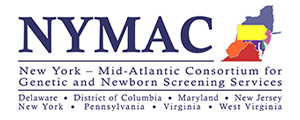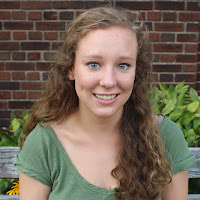When most of us think about our health, we think of things like blood pressure which can have serious implications for our own health, but may not mean much to our relatives. Most likely, you haven’t given much thought to your genetics, unless you have a reason to. For most of the medical
 |
There is no crystal ball that can tell clinicians what to do with
genetic test results in the event that their patient passes away
and their family members want information. |
community, your genetic information is part of your protected medical information. This means that physicians follow the same rules to protect your genetic information as they do for your other health information. But, there is something different about genetic information. It can have implications for your biological relatives, not just you. Many people will decide to allow relatives to be notified of any genetic conditions they are diagnosed with, and usually this process works well. A problem can occur when genetic testing doesn’t provide an immediate answer, and the patient passes away before it can. When this happens, clinicians are left to grapple with the conflicts between legal authority and clinical relevance. On one side are those with the legal authority to receive this protected medical information about the deceased and on the other side are the biological relatives who that information may have clinical relevance for, but may not have legal authority to receive it. There is no clear guidance on what a clinician is to do with information they gain about a deceased patient’s genetic testing. My study, “Disclosure of Reclassified Variant of Uncertain Significant (VUS) Results to Biological Relatives of Deceased Patients: Current Practices”, has the goal of finding out what clinicians are currently doing with that information. I am asking genetics professionals across the country what they currently do and what they think should be done when a clinician is notified of new information regarding the genetics of a deceased patient. The long-term goal of my study is to contribute to policy development that will guide clinicians through this complex situation. This is a complicated problem though, and the first step is going to be finding out what is happening now, to help us understand where we need to be going in the future. In taking on this project, I have learned a great deal about developing a research project, survey development, collaboration, policy, and genetics.
Our bodies carry two copies of every gene, we get one from our mother and one from our father. Genetic testing is indicated for individuals and families with conditions known or suspected to have a
 |
DNA helps to make us who we are and is part of our protected
health information. |
genetic cause. Conditions for which genetic testing is available exist in many medical fields, including oncology, pediatrics, prenatal care, cardiology, and hematology among others, and can impact patients at any age. Genetic testing can be performed on single genes, multiple genes (gene panels), whole exome (the part of our DNA which is used to make proteins), or whole genome (all our DNA). The type of testing performed depends on the symptoms of the patient, the amount of information desired, and the scope of genetic factors involved for the condition of concern. If a genetic condition is identified, it may modify medical management of the patient such as screening methods and frequency as well as surgical and medication options that may become available. However, not all genetic variants will impact medical care. Variants identified through genetic testing fall into three main categories: pathogenic variants, benign variants, and variants of uncertain significance (VUS). A pathogenic variant is known to be associated with a condition, a benign variant does not impact our health, and a VUS is a genetic change which has unclear implications.
In 2015, the American College of Medical Genetics put forth guidelines for classifying genetic variants into five different classifications: pathogenic, likely pathogenic, of uncertain significance, likely benign, or benign. These guidelines recommend using published literature, computational predictive programs, family studies, and bioinformatics resources to determine which classification is most appropriate for a specific variant. Information from these sources is combined to assess the variant’s impact on health and determine its classification. If available evidence is insufficient for a variant to be classified as pathogenic, likely pathogenic, benign or likely benign, ACMG recommends classifying the variant as being of uncertain significance until available evidence becomes sufficient to reclassify the variant. Clinicians may use these general guidelines to classify genetic variants, but the details of the process vary. A VUS can be identified in anyone who gets genetic testing. VUS results are not used in medical care, but are recorded by the laboratory that performed the testing until enough information is available to reclassify the variant. However, the reclassification process may take years and some patients will pass away before reclassification of their VUS occurs. When a VUS result is reclassified by a laboratory, many will send out an updated report with relevant information about the variant to the ordering physician. Even after the patient has passed away, the reclassified results may still be of clinical value to surviving biological relatives. Biological relatives of the deceased patient have a certain probability or chance of having the same variant as the patient, depending on how closely they are related. Reclassification of a VUS to a pathogenic variant indicates that biological relatives of the deceased patient may have increased risks to carry the same variant, and associated disease risks. Conversely, a reclassification of a VUS to a benign variant can help eliminate the anxiety associated with an uncertain result.
There are currently no guidelines in place for when and how clinicians should contact biological relatives of a deceased patient to inform them of a reclassified VUS result. However, this issue will
 |
Determining what to do with genetic test results of someone
that has passed away may have implications for other family
members. |
become increasingly important as genetic testing becomes more common and testing volume increases. A change in clinical testing practices, from single gene tests to broader tests that look at multiple genes, will likely increase the frequency of VUS findings as well. In general, increasing the number of genes being tested increases the likelihood of discovering a VUS. Current policies which do address the issue of genetic information disclosure after the death of the patient typically treat genetic information as medical information. In Pennsylvania, this means that only the executor of the estate has legal authority to receive the information once the patient has passed away. Clinicians who receive a VUS reclassification for a deceased patient may struggle with who has legal authority vs. clinical relevance to receive that information. Guidance on this issue is minimal, and clinicians may use a wide variety of methods to identify the most appropriate person to receive the reclassified result. Clinicians may reach out to the last known contacts for the deceased, the spouse of the deceased, the hospital’s medical records department, etc. in order to identify who can receive the reclassified VUS results. Other physicians may not attempt contact at all, since the patient is deceased. Because of the lack of guidance and the growing relevance to clinical genetics, it is becoming increasingly important to establish guidelines which best serve the patients, their families, and the clinicians involved in this process.
My study will distribute a questionnaire to about eight-thousand genetics professionals across the
 |
While it may be a lot of work, researching these types of
questions go into providing better genetics care for the
population. |
US and ask what they have done when they encountered this situation. A reclassified VUS in a deceased patient is not something that occurs every day though, and I will also be asking for opinions on what should be done in these situations. Data will be reported according to demographic information such as years of practice and current role of the responder. I’ll also compare responses and look for factors which may be affecting those responses. Data collected though this survey will be reported in my thesis project and hopefully published as a research article in a peer-reviewed journal to promote work on this issue and raise awareness in the genetics community.
For me, the process of developing a study from start to finish has been very rewarding. I am fortunate to work with some very experienced mentors who have provided a great deal of insight into the construction, distribution, interpretation, and reporting processes involved in this study. Developing a survey from scratch has been the most interesting component so far. I learned a great deal about the process of developing a survey and the work that goes into it. I have also worked with the Institutional Review Board (IRB) to ensure the privacy and well-being of research participants is protected and coordinated distribution of the survey with national organizations. It is no surprise that I have learned a great deal in this process. I have a long way to go before this project is completed, so I know I will learn a lot more. I have enjoyed working with my mentors and am excited about the skills I am developing. I now look forward to research opportunities after graduation, and hope to continue working on this issue to reach the end goal of policy development.
 |
| -- Seth Lascurain, Class of 2018 |






























